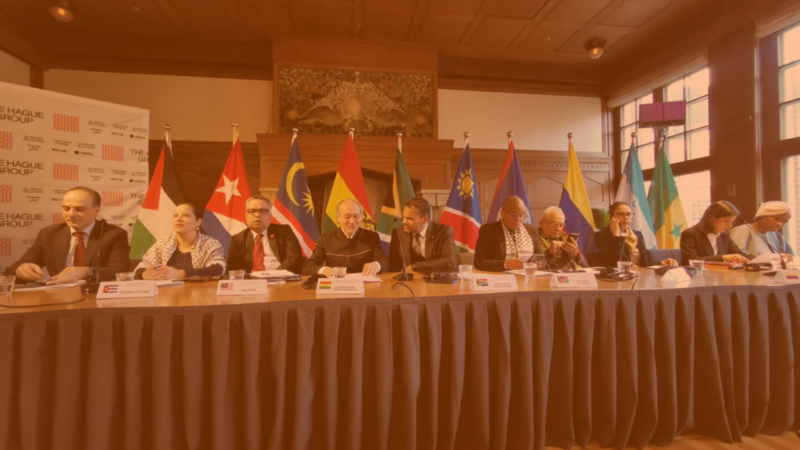In the past week Boris Johnson’s most senior adviser Dominic Cummings has faced criticism from across the political spectrum and the country for breaking lockdown at the beginning of April.
In a statement on Monday, Cummings admitted that he returned to work at 10 Downing Street after his wife showed symptoms for COVID-19. After the Prime Minister tested positive for the virus, Cummings drove 260 miles from London to his parents’ home in Durham where he did not isolate as per his own advice, instead taking a trip with his family a 40 minute drive away to Barnard Castle. The reason for such an excursion in the circumstances, Cummings stated on Monday, was to test his eyesight before the long drive back to London.
At this time, the lockdown in Britain was at its height and the British people, on the government’s orders, had sacrificed their way of life for the common good, to “protect the NHS” and “save lives.” Meanwhile, mothers struggled to feed their children, dying patients were denied seeing their loved ones, and the continually repeated words of Boris Johnson were heard on every TV, radio and social media: “Stay at home.” The wave of anger descending on Mr. Cummings now doesn’t stem from political opportunism; it comes from a feeling of betrayal, the feeling that the most powerful unelected man in Britain has taken the country for a fool.
Cummings’ acts of hypocrisy and arrogance warrant a resignation.
Cummings actions are undeniably wrong — breaking the lockdown against his own explicit rules at a critical time in the pandemic – and it would be reasonable to assume that he must face genuine consequences. Catherine Calderwood, former Chief Medical Officer for Scotland, was pressured into resigning in April for making trips to her second home, as was Professor Neil Ferguson, a leading scientist in British government, when he allowed his mistress to visit his home.
Arguably the actions of Cummings are more extreme, and put more people at risk, so a resignation is the least the public could expect from a government that was honest and just. But the British establishment, it would seem, cannot afford to let their chief adviser go; in the immediate aftermath of the exposé, ministers leapt at the opportunity to earn their way into Cummings’ good book, with tweets and statements made expressing support.
Establishment closes ranks.
Following the controversy of Cummings’ initial actions came further shock and disgust from the public at the unanimous support of the cabinet ministers. Senior ministers such as Rishi Sunak, Matt Hancock and Boris Johnson tweeted expressing that in their view Cummings had acted “reasonably” and as any good father would, an insult to the many families who have followed the lockdown guidelines and suffered as a consequence.
Opposition within the party has been scarce, but MP William Wragg has said that the defence of Cummings is “humiliating” and “degrading”, and that the cost of supporting the government adviser in this controversy would be loss of “valuable public and political good.” One junior minister, Douglas Ross, has resigned on the basis that Cummings was “well-meaning” but wrong, and the leader of the Scottish Conservative Party has joined 24 Tory MPs in calling for Cummings to reconsider his position. Nevertheless all senior cabinet ministers have kept in line with the chief adviser’s claims — including Michael Gove, who said on LBC that he, like Cummings, has tested his eyesight by driving. To much of the public, this is an astonishing and ludicrous claim which indicates the depth of Cummings’ importance to the government.
Cummings isn’t the leader of the Conservative party or the country — this isn’t a case of rallying behind the front man in a time of crisis — and yet the astounding loyalty to him demonstrated by cabinet ministers, putting their integrity, honesty and credibility on the line, goes some way to demonstrate the extent of his power in government. How far would the cabinet go to support a fellow minister in such a mishap, or a lowly MP? Would they be written off like Catherine Calderwood or Prof. Ferguson?
In a disturbing parallel of Malcolm Tucker in British comedy series The Thick Of It, or Sir Humphrey in British sitcom Yes Minister, Cummings has worked his way to the very centre of British government, bypassing the democratic process entirely, pulling the strings of the most drastic change in recent British political history — Brexit — and leaving us, the public, wondering whether satire imitates life or the other way around.
Man of the people.
The sentiment behind the fury of the public is that one man in government thinks that the rules apply to everyone but himself — but Dominic Cummings isn’t even an elected MP or a civil servant. He has never claimed to represent the interests of the people.
He’s an adviser, a spin doctor, the mastermind behind the political moves of Johnson and his cabinet, and he believes that the rules don’t apply to him because, as we’ve seen in the past few days, they don’t. The British establishment has bent over backwards to save this man’s job, and after stumbling through a statement of poor excuses, proven lies and clear admissions of guilt, its business as usual at Number 10.
Populism in the time of coronavirus.
This reveals a worrying aspect of the current British government, interwoven with Johnson’s populist tendencies, which was highlighted also during the Vote Leave campaign (led by none other than Dominic Cummings). Johnson, Cummings and the government are attempting to gain public backing for self-serving actions which go against the public’s interest — an ugly streak of populism, built on a basis of deceit and corruption. It worked for Brexit, it worked for Trump, but it’s not working now.
In the midst of a pandemic that has ripped the fabric of ordinary life, as the government has floundered and flopped at every opportunity — delaying the lockdown despite warnings, failing to protect NHS workers, broadcasting vague and useless advice, and now this — in true British style the public seems most gravely offended by the sheer cheek of Dominic Cummings, his arrogance to assume he’s above the rules, his audacity to lie and act sanctimonious in the aftermath.
The actions of Johnson’s government during this crisis, and the case of Cummings and the shameless defence of him by all prominent ministers, has eroded much of the public faith in the PM and his government. It has been revealed in the direst of circumstances that Boris Johnson and his cabinet represent the people of Britain as much as Trump or Bolsonaro represent the ordinary American or Brazilian, as they ridicule the disease and safety precautions, claim to have everything under control and dodge responsibility like it’s coronavirus.
These three leaders built their careers on toxic politics — lies, fear, and hate. They claim to have made their countries stronger, and yet they have each made embarrassments of their nations with their conduct in dealing with the pandemic, and as a result the UK, the USA and Brazil are amongst the worst affected countries in the world.
There has certainly been a huge amount of anger from the public towards these figures, but to what end? Will Joe Biden get the better of Trump this year? Will there be another general election in Britain before 2024? The Dominic Cummings saga goes to show that, in Britain, the will of the people comes second to the will of the people in power. If those like Dominic Cummings are not held to account, the engine of the populist right will continue to rumble on and democracy in Britain will be made redundant.
Do you want to be informed of DiEM25's actions? Sign up here















